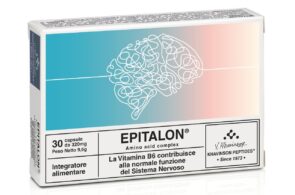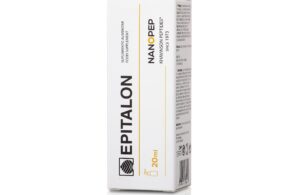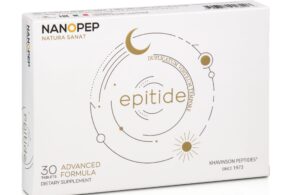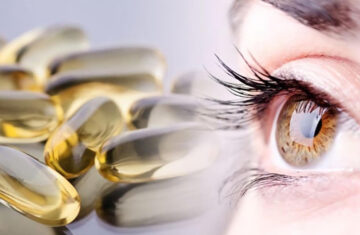Epitalon vs Melatonin
The role that the hormone melatonin plays in our body system cannot be overestimated. Not only it is responsible for the quality of our night sleep but it also affects our waking patterns during the day.
For those who are wondering “is melatonin a peptide hormone,” the answer is “Yes, it is.” This “sleep hormone” is produced by the pineal gland located in our brain. The pineal gland is the most important gland of our body. The so-called biological clock that regulates our circadian rhythms.
The secretion of melatonin depends on the amount of daylight. The less light, the more melatonin is released by the pineal gland to help us prepare for the night. It lowers the body temperature, slows down all metabolic activity and brings relaxation. During sleep, melatonin helps our body to restore and refresh its powers.
Sleep disorders
Unfortunately, our modern life does not assist in the healthy running of the circadian rhythms. Prolonged exposure to artificial lights (TVs, laptops, smartphones, etc.) has a negative impact on melatonin release leading to different sleep disorders. The secretion of melatonin is also disrupted by jet lag, shift work, aging, and stress.
The vast majority of people having sleep issues decide to take synthetic melatonin as a dietary supplement or drug. Although it does resolve problems in the short-term, synthetic melatonin may have some severe side effects in long-term use. For example, it may cause drug addiction and decrease the level of natural melatonin in the body. Other symptoms may include dizziness, headache, nausea and/or agitation.
Solving the problem in the core
The most effective way to restore circadian rhythms is to regulate the very secretion of hormones. It is impossible to reach a healthy sleep regime without normalizing hormonal production and metabolism in the pineal gland. This is why synthetic melatonin might not be the best choice as it solves the effects of a problem and not its cause.
To eliminate the cause we need to use means that effect directly on the pineal gland and that is pineal gland peptides. Peptides are mini-proteins found in all living organisms on Earth. Due to their natural and close to natural origins, they do not have any side effects and do not cause any addiction.
Epitalon peptide
Epitalon is an improved amino acid complex that contains peptides identical to ones in the pineal gland. Epitalon was first developed by Professor V.K. Khavinson belongs to the unique peptide group called Khavinson peptides. When it comes to Endoluten vs. Epitalon, the latest has a more prolonged effect.
Its non-hormonal composition does not have a negative impact on any of the systems in the human body even after long-term use, which increases Epitalon sleep positive effects and promotes other Epitalon peptide benefits.
Epitalon peptide benefits include:
- Eliminates insomnia;
- Restores circadian rhythms;
- Beats jet lag;
- Regulates the level of natural melatonin in the body.
In short, Epitalon sleep promotion allows you to smooth out your sleeping and waking cycles. It is considered to be one of the best peptides for sleep promotion.
As for Epitalon side effects, there are almost none. If you have a shift work, it’s likely that the best time of the day to take Epitalon will vary depending on when your shift starts. Other than that, Epitalon peptide side effects are almost non-existent.
Epitalon vs Melatonin
Although both Epitalon and Melatonin solve similar problems, they have the following key differences.
| Melatonin | Epitalon |
| Hormonal | Non-hormonal |
| Cause addiction | Does not cause addiction |
| Reduces secretion of melatonin | Does not reduce the secretion of melatonin |
| May worsen mood and emotional state | Improves mood and emotional state |
| May lead to chronic fatigue due to addiction | Does not lead to chronic fatigue |
| Is not recommended for long-term use | may be used in long-term |
However, sleep benefits aren’t the only positive factors of this amino acid complex. Epitalon peptide side effects include the possibility of combating aging and improving nervous system functions. These supplements are completely harmless, and following the requirements, people taking them will never encounter any negative Epitalon side effects.
Besides Epitalon, there is another peptide with similar effects, known as Pinealon. However, the later supplement can cause side effects, like headaches and nausea more frequently. It means that Epitalon wins in the Pinealon vs Epitalon competition.
Melatonin is a hormone that regulates the sleep-wake cycle. It is produced by the pineal gland and helps signal to the body that it’s time to sleep and wake up.
Prolonged exposure to artificial light, especially blue light, can suppress melatonin production, disrupting sleep patterns and reducing sleep quality.
Long-term use of synthetic melatonin may have side effects such as drowsiness, headaches, and changes in blood pressure. Consultation with a healthcare professional is recommended for extended usage. As an alternative, you can try out bioregulators that stimulate the pineal gland to produce melatonin.
Epitalon and synthetic melatonin have different mechanisms of action. Epitalon primarily focuses on influencing cellular functions, while synthetic melatonin directly impacts the sleep-wake cycle, leading to a higher risk of side effects appearance.















